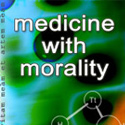Medical Treatment For the Dying: Discussion Paper
Response on behalf of Christian Democratic Party (WA Branch)
The contributors to the Discussion Paper are to be congratulated for the effort that has gone into this extremely complex area.
We want to affirm that which could be said to be self-evident and in accord with Natural Law that all human life has intrinsic worth and value, in all states of disability and dependency, until life’s natural end.
Compassionate care for the dying is a natural corollary of this foundational principle and is highlighted by two dictums of medical practice that have rightly stood the test of time:
1. First, do no harm (Hippocrates: Primum non Nocere)
2. To cure sometimes, to relieve often, to comfort always (said to be 15th century proverb)
We believe that Australian doctors have followed these principles well but we are concerned lest attitudes shift in a direction of relative values and compromise especially in the face of medical manpower shortage and the pressure for financial rationing in the context of an ageing population. Western Australia has done well in the provision of high quality, compassionate and economical Palliative Care. We consider it very important that this continue to be adequately funded.
We believe that medical treatment for the dying as at present in Western Australia is working well and that no legislative change is needed nor is it likely to be beneficial. We acknowledge that fears and uncertainties exist and that there are pressures from many sources to clarify the legal aspects but we have concern that any attempt will only result in more legal complexities and will in fact hinder good, compassionate medical care of the dying. We consider that we have done well in this state to resist such change and that the fact we are still able to care well for the dying is proof that change is not needed.
Proposed Advance Health Directives (AHDs):
In our view there are cogent reasons why AHDs cannot work, have been shown not to work and we are opposed to incorporating them into a statutory scheme. Fundamental to this is the impossibility of predicting future reactions to future unknown and infinitely variable situations.
Summarised below with additional comments are points taken from Enough: The Failure of the Living Will (Fagerlin & Schneider, Hastings Centre Report Mar/Apr 2004).
AHDs demand an understanding of circumstances and future response to those circumstances in a way that is impossible and which does not take cognisance of fact that views and wishes will in the future change e.g. a 45 yr old may refuse resuscitation if he loses both legs whereas when he is 55 and has lost both legs he is able to cherish life and find life fulfilling.
To aid ‘sensible’ and accurate prediction it is proposed that doctors or counsellors help patients with answering questions or responding to statements – but this would take many hours to help patients understand the various scenarios and point out how their attitudes to life may change as it becomes more tenuous. To enable informed consent for an operative procedure, considerable time must be spent on just one situation with many ramifications and this takes place in the here-and-now with ‘real’ reactions. To enable informed consent re an AHD many situations must be discussed, each with many ramifications, and with unpredictable future responses to those situations. To do such with justice would spawn a whole new ‘health’ industry, be costly and time consuming at a time when costs and manpower are in short supply.
Efforts to devise workable forms have failed. They are either too general, or too specific with questions that are too hard to understand leading to answers that are mutually exclusive with patient responses being determined by how the question or statement is phrased.
Too few of the forms get to where they can be accessed but even when they do there is evidence that neither patient surrogates (e.g. spouses or children) or physicians were able to predict (competent) patient responses to situations any better whether the patient had or had not completed an AHD.
Further there is little evidence that AHDs actually affect patient care. Not only are AHDs difficult to apply to current clinical situations but there is difficulty in knowing when to apply i.e. when the patient moves from being readily treatable to being untreatable and by that point the way to treat is usually self-evident. Prior to the point of being untreatable AHDs were not seen as applicable.
We acknowledge that Advance Health Directives will exist in many forms but we are opposed to incorporating them into any statutory scheme.
Proposed Enduring Powers of Guardianship (EPG):
Although EPGs in comparison with AHDs are simpler, cheaper, and have potentially better outcomes as guardians will have a better knowledge of current situations than the patient could possibly have had in advance, they also present dangers and complications especially if incorporated into a statutory scheme.
We consider that the present practice of ‘informal’ but good communication with significant others results in good patient care, a minimum of distress and guilt on the part of the others, with little dispute as to ‘incapacity’ and direction of treatment. Complications arise when legal definitions are applied.
We are also concerned at the influence that guardians with differing outlook and values may have on decision-making e.g. a ‘young’ person making decisions on behalf of another with different views on what constitutes quality and preciousness of life e.g. a ‘happy’ senility or quadriplegia.
We are opposed to guardians with the authority to vary treatment options being appointed by the Guardianship and Administration Tribunal.
We are opposed to the introduction of Enduring Powers of Guardianship into any statutory scheme.
Proposed Statutory Protection:
Once again we believe that no legislative change is needed.
If legislation is to be introduced then we would want to take a closer look at detail and definition. We believe problems exist in the interpretation of terms such as terminal phase, no real prospect of recovery, and permanent vegetative state. For instance, terminal phase of a terminal illness should be clarified as meaning where death is both imminent and inevitable, usually in terms of hours rather than days and certainly not weeks – otherwise treatment to relieve pain and distress (as per South Australia’s Consent to Medical Treatment and Palliative Care Act 1995) could gradually be blurred in accordance with professional standards of palliative care with the deliberate intention of hastening death.
For and on behalf of Christian Democratic Party (WA)
Dr Lachlan Dunjey
MBBS FRACGP DobstRCOG
State Council Executive Member






